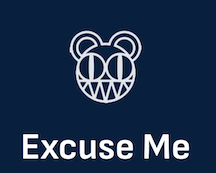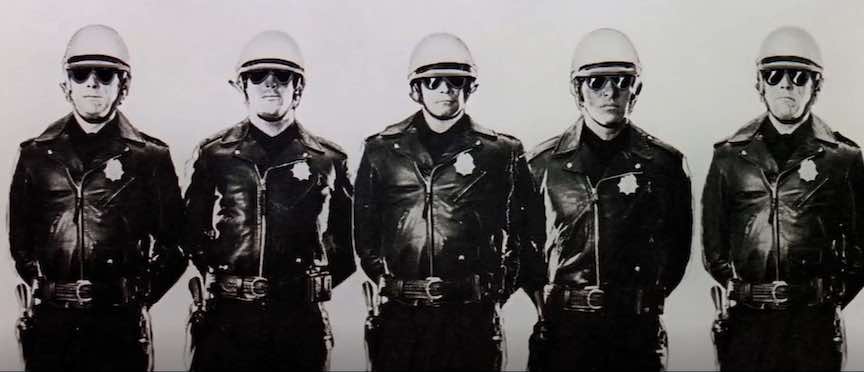 THE DAILY TELEGIRAFFE
THE DAILY TELEGIRAFFE 
From the Daily Telegiraffe Archives: What We Know About January 6, 2020, on January 6, 2024
What We Know About January 6, 2020, on January 6, 2024
Did President Donald Trump, then the U.S. President and the most powerful man in the country,
No. Trump did not act to defend the Capitol.
Instead, Trump was in his private dining room, on the phone with Rudy Giuliani,
Instead of choosing to send in forces to protect the Capitol, instead of issuing an immediate order
Instead, of protecting the Capitol, Trump was telephoning senators one by one to urge them to delay the election certification.
Instead, Trump sat in the dining room, watching the attack on FOX "news" on TV.
How can anyone doubt that this was exactly according to his plan? Why else would he refuse to act in defense of the Capitol?
What did he do instead? Instead, Trump sent out a 2:24 pm tweet fingering Vice President as a coward,
Donald Trump wanted this disruption of the election certification, he wanted the Capitol under attack.
To steal the election. That’s right, Trump attempted a well-planned, multi-part violent coup to overturn the election and steal the Presidency.
Hours later, at 6:01 pm Trump actually sent out a tweet justifying the attack. "These are the things and events that happen
We now have an even clearer picture of the thuggish, threatening, blackmailing efforts of Trump and his allies.
Not the man for the White House.
Vote against this corruption personified.
Vote against his power-drunk allies and enablers.
Republicans, do you believe in law and order? That our laws apply to everyone, especially those who
From the Front Office: The Biggest Fraud: Shameless in his Arrogance And Lies
Yes, he's the biggest. The biggest Fraud.
Lest ye forget, in addition to violations of the Espionage Act, the cases below are also part of the pathological criminality of Trump.
In the case filed by Manhattan District Attorney Cyrus Vance, the Trump Corporation and the Trump Payroll Corporation were convicted of 17 felonies including tax fraud and falsifying business records in running a decade-long tax fraud scheme. The maximum possible fine was 1.6 Million, which they were ordered to pay. Its pocket change for them, but what the guilty verdict establishes is another example of the Trump "Culture of Fraud In Action"-- lying and stealing, writ large. "Winning" at any cost.
In a different, sixteen-page indictment, “The People of the State of New York Against Donald J. Trump,” Manhattan District Attorney Alvin Bragg’s office accused Trump of “Falsifying Business Records in the First Degree in violation of Penal Law §175.10”—a New York statute—34 times between February and December of 2017. The charges all relate to payments Trump made to Michael Cohen, his former personal lawyer, who, just before the election in 2016, had quietly paid off Stormy Daniels, an adult-film actress who claimed to have had an affair with Trump. For each of the 34 counts, the indictment accused Trump of acting “with intent to defraud and intent to commit another crime and aid and conceal the commission thereof.” Under New York law, intent to break another law is necessary to charge falsifying business records as a felony rather than a misdemeanor. Bragg has referenced multiple potential second crimes, including violations of state and federal election law.
In a still-building case, Fulton County District Attorney Fani T. Willis continues an investigation to examine efforts by Trump and his allies to overturn his narrow 2020 defeat in Georgia. Their efforts amounted to a far-reaching criminal scheme under Georgia’s Racketeer Influenced and Corrupt Organizations (RICO). Willis has said she is focused on the phone calls Trump made to multiple Georgia officials seeking to reverse his defeat, his campaign’s efforts to persuade the Georgia legislature to declare Trump the winner, the gathering of Trump’s electors to cast electoral college votes for Trump after Joe Biden had been declared the winner in the state, and the Trump campaign’s potential involvement in an unauthorized breach of election equipment in rural Coffee County, Ga. The Georgia RICO statute is broadly written to allow the inclusion of violations of federal law as well as some other states’ laws. For example, acts to obstruct justice committed in Arizona might be relevant if the goal of the enterprise, of the racketeering activity, was to overturn the 2020 presidential election nationally, as well as in Georgia.
Which, yes, was the goal of the enterprise: to overturn the 2020 presidential election nationally, as well as in Georgia
Money, threats, revenge. Conspiracy to commit election fraud is a real crime. There has been one central figure who has tried, repeatedly, without shame, to steal the 2020 Presidential Election. His desperate attack, subverting our democratic process, inciting violence at the Capitol, encouraging the rioters, and attempting to install fake electors in a coup attempt for the White House shows how far Trump will go to "win" at any cost.
I have zero patience for those who moan and say that today is dark day because a former President is charged with these crimes. To the contrary, they were the darkest days when these acts were committed by Trump and his allies, in furtherance of Trump's insatiable quest for power.
From the Castle Keep: Trump's 2024 Comments Mean Another Bid for the Presidency
That man should be in jail.
Trump intends to put his heel on the throat of American Democracy until he controls everything, and can obliterate it all.
Every vote for a Republican is indeed a vote for Trump. Don't let it happen.
~~~~January 6, 2026~~~~
It’s still very much Jan. 6 in America.

act to defend the Capitol as a violent mob stormed it with the aim of stopping the counting of the electoral votes
and blocking the transfer of power?
while watching the rioters physically breaching the barricades and storming the Capitol, live at 1:49 PM.
to the mob to disburse in an emergency press briefing, Trump's action was to double down and retweet
a link to his own earlier inflammatory insurrection speech.
escalating the violence, and giving the violent mob justification to intensify their efforts to stop the certification of votes.
when a sacred landslide election victory is so unceremoniously and viciously stripped away from great patriots
who have been badly and unfairly treated for so long. Go home with love and in peace. Remember this day forever!"
We have an actual recording of Trump telephoning a Georgia official asking him to “find votes” seeking to reverse his defeat!
wield their power to abuse them? Vote to protect and defend our country. Democrats and Republicans and everyone
who really cares about America and our future.




What's Up Science: The King of King Tides
The lunar perigee, the point at which the moon is nearest to the Earth in its elliptical orbit. occurred on Jan. 1.
During perigee, the Moon appears larger and brighter, creating the supermoon phenomenon.
Perigee causes higher tides due to the Moon's greater gravitational pull.
Variations in the lunar orbit affect both perigee and apogee in distances and gravitational effects.
A superluna or supermoon, occurs when a full moon coincides with the perigee. During this event, the Moon
may appear up to a 14% larger or with a 30% brighter than at their average point.
Subsequently, perihelion, or the point at which the Earth is closest to the Sun, occurred on Saturday, coinciding with
the arriving rain showers and contributing to 1.3 feet of storm surge. The alignment of all three events created the perfect storm.

The Cliff House (LowTide) 1904 ~ Gelatin silver print at the De Young Museum, San Francisco, Gallery 17.






"This is What You Get" Exhibition at the Ashmolean Museum, Oxford.


Don't stop caring. Don't stop trying to figure out what to do. This really is a call to action.

"My name’s Donovan. Irish. Both sides, mother and father. I’m Irish, you’re German.
But what makes us both Americans? Just one thing. One, one, one. The rule book.
We call it the Constitution and we agree to the rules. And that’s what makes us Americans.
It’s all that makes us Americans, so don’t tell me there’s no rule book and don’t nod at me like that, you son of a bitch.”
---- Tom Hanks, “Bridge of Spies” (2015)
A Ticking Clock on American Freedom
Margaret Atwood told us so.
From the Front Office: I Didn't Just Get Fired From My Job, But They Did
Thousands of people, like you and me, have been fired from their government jobs, without cause, and without due process.
Stripping people of their livelihoods, their careers, without due process--without any recourse.
These employees are not AI. They are not bots.
Illegal. Unconstitutional. Immoral. UN-American.
Excerpt From The New Yorker, March 30, 2025
We Are Sleepwalking Into Autocracy
Interview by David Remnick with
Senator Chris Murphy of Connecticut, who describes how free and fair elections might end in America as soon as 2026.
Senator, I wonder if we could try to define the crisis that we’re in. I’m of the opinion that the Trump Administration is intent on creating an American-style authoritarian situation. Do you agree with me?
I do. Long ago, the Republican Party decided that they cared more about power than they did democracy. That’s what January 6th was all about—regardless of who won the election, they wanted to make sure that their person was in charge. They believe, and have long believed, that the Democratic Party progressives are an existential threat to the country, and thus any means justifies the end—which is making sure that a Democrat never again wins a national election. So, this seems pretty purposeful and transparent—this decision to rig the rules of democracy so that you still hold elections, but the minority party, the opposition party, is rendered just weak enough, and the rules are tilted toward the majority party just enough, so that Donald Trump and Republicans and the Trump family rule forever. And, of course, this is not an unfamiliar system. This is Hungary, this is Turkey, this is Serbia. There are plenty of countries, all around the world, that hold elections—it’s just that one party continues to win. And that is, I think, the very concrete, very transparent plan that Trump and his White House are implementing right now.
Why do your Republican colleagues put up with this? Do they fess up to it when you talk to them in private?
They do not fess up to the plan behind closed doors. They are living in a self-created delusion. Most of them will tell you that it’s not as bad as you think. Yes, Donald Trump is acting in a way that previous Presidents have not, but we will still have a free and fair election; what he’s doing is not enough to topple essential democratic norms.
They are, of course, also deeply scared of him. They have worked very hard to become United States senators. You’ve sacrificed a lot to get to this point, and you don’t want to stop being a United States senator once you’ve gotten here. And for Republicans, the only thing that keeps you a United States senator is staying on Donald Trump’s good side.
I have to ask you why. Is the job so great—is being called “senator” by young staffers so great—if you have to give up and cede your principles?
Of course not. Of course not. And maybe this interacts with the third thing Republicans will tell you, which is, “Hey, listen, I’m trying to make this better.” Republicans in the mold of John Thune—and I’m not saying that he personally has said this to me, but people in his mold will say, “Well, if I cross Donald Trump, I’ll get replaced by somebody infinitely worse. And I can try to work behind the scenes to make this better.”
So, what’s the difference at this point?
Well, I’m telling you how they rationalize it. I’m not defending it. Of course, it is all treachery to lie down with Donald Trump, who is actively trying to destroy our democracy.
And then the majority of Republicans in Congress are fully on board with the idea that the rules should be rigged so that Democrats never rule again. There is just an exhaustion with democracy among a lot of Republicans.
This has only been going on for a couple of months—the Administration began January 20th, and it’s quite different from the first term. How bad is this, and where is it going, in your estimation?
I mean, it can be true that some of the orthodoxy of the left put us in the position of being unelectable. It is also true that the bureaucracy inside the federal government, the state governments, and local governments has become so big and cumbersome as to make it impossible to get things done in this country. But that is not mutually exclusive with the belief that we have months—not a year—before our democracy is rendered so damaged that it can’t be repaired.
I do think that over the last four years, those surrounding Donald Trump put together a pretty thoughtful plan to destroy democracy and the rule of law, and you are seeing it being implemented. Just in the last week—and you and others have covered this well—the assault has been trained on academia, institutions of higher education, and the legal community, the biggest law firms in this country. In democracy after democracy, those two institutions—higher education and the legal profession—are, in many ways, the foundation that undergirds the rule of law. Those are the places where people think about the rule of law, protect it, warn when it is being undermined. The legal profession is the place where people contest efforts to try to destroy the rule of law. And so it is not coincidental that Trump is trying to force both higher education and the legal profession to capitulate to him, and to commit, often through very explicit bilateral agreements—for the most important institutions—to essentially quelling protest.
And, of course, what the Administration is doing by taking on these very high-profile institutions is sending a warning to other law firms and to other colleges: if you take us on—if you file lawsuits against the Administration, if you support Democrats, if you allow for campus-wide protests against our priorities—you’ll be next. And so what will happen here—what inevitably happens in every democracy in which this tactic is tried—is that the Administration won’t have to go after every institution or every firm, because most of them will just decide in advance to stay out of the way. When students are filing a petition for a massive protest against a Trump Administration policy, they may just find it much harder to be able to exercise free speech on campus.
This is how democracy dies. Everybody just gets scared. You make a few examples, and everyone else just decides to comply.
That brings us to the real crux of our conversation today—the Democratic Party. What is the Democratic Party going to do about it? Every indicator that I see, in terms of public-opinion polls, shows widespread dissatisfaction with the Democratic Party. What are the Democrats going to do in a concerted way in the Senate and the House?
First, I do think there is a vast overestimation of the power that Democrats have. We are in the minority in the House and the Senate. We don’t have the Presidency. There are some people out there who think we should just be able to stop this. And the fact of the matter is that we don’t have an army, and thus we are relying on public mobilization and the courts.
Second, I do think that there’s an element out there that doesn’t actually want to have the really hard conversation about why we lost. I mean, people knew who this guy was. He said he was going to be a dictator on Day One. He told you he was going to pardon the January 6th protesters. He still won.
People thought he was fooling around.
Nah. I mean, that might be true, but I don’t know that that’s the whole story. I think we’re a pretty broken brand right now, and some of the people on the left don’t want to go through that hard rewrite of what the Democratic Party stands for.
What’s at the core of the brokenness, if we can be specific?
Well, we have become the status-quo party, and so we have reverted to defending democracy instead of explaining how we are going to break it down and reform it. We have not been a pugilistically populist party, where we name the people who have power and we build very easy-to-understand solutions about how to transfer power to people who don’t have it. And then we’re a pretty judgmental party, filled with a dozen litmus tests. We don’t let you in unless you agree with us on everything, kind of—from gender rights to reproductive rights to gun control to climate.
We’ve got to be a party that invites people in as long as they agree with us on the basic economic message, and build our party with a little bit more acceptance of people who have diverging views on social and cultural issues.
How would that conversation and that process come about, among the Democrats?
Well, I think first is making the decision that economics is the tentpole. And populist economics. That means that you are going to have a party that, frankly, sounds a little bit more like Bernie Sanders or Elizabeth Warren. You are talking about billionaires and corporate power. You are proposing really easy-to-understand ideas on how to shift that power—whether it be a cap on rent increases, or a massive increase in the minimum wage, or the regulation of every single drug price, not just the ten highest-priced drugs. And then it is just making that decision to go out and ask people to come into the coalition who might not be with us on issues that I care about, like guns, and to nominate candidates that signal that the Party is a big tent—people who are populist economically, but may not line up with us on all the social and cultural stuff.
Can you explain the split we’re seeing between Democratic senior leadership and more junior members of the Party?
I don’t know that it really breaks down along generational lines, but I can explain what the basic argument is right now. Is this a normal moment, where you can just keep on punching Donald Trump, and pushing down his approval ratings, and eventually win the 2026 election, and set up a potential win in 2028? Or is there a pretty good chance that we’re not going to have a free election in 2026?
You believe that’s a possibility?
A hundred per cent. Every single day, I think the chances are growing that we will not have a free and fair election in 2026.
What does that look like?
It may not even be that the mechanics of the election are rigged. I’m not suggesting that there will be election officials out there stuffing ballots. What I’m talking about is that the opposition—the infrastructure necessary for an opposition to win—will have been destroyed. No lawyers will represent us. They will take down ActBlue, which is our primary means of raising small-dollar contributions. They will threaten activists with violence, so no one will show up to our rallies and to our door-knock events. This is what happens in lots of democracies around the world; the opposition is just kept so weak that they can’t win. That’s what I worry about being the landscape as we approach 2026. And, if you believe that, then everything you do right now has to be in service of stopping that kind of weakening or destruction of democracy.
So, to me, the essential difference in the Party right now is that some people think that that has a very low likelihood, and so we should just engage in normal politics—try to become more popular than Republicans. And people like me believe that it won’t matter if we’re more popular than them, because the rules won’t allow us to run a fair election; and so everything we are doing right now, both inside the Capitol and outside the Capitol, should be geared toward trying to make Republicans stop this assault on the rule of law and democratic norms.
Do you think it’s possible that Donald Trump wants to stay in office past 2028? How would he do it?
I think it’s absolutely possible. People very close to him are saying that it’s already a foregone conclusion. If he breaks the Supreme Court and breaks the Constitution and pays no consequence for it, we could ultimately be living in a situation in which the President just declares that he will stay in office. He could also hand power to a relative—maybe Donald Trump doesn’t run, but a Trump family member runs and the Trump family just stays in power. I think all of those things are possible.
The Democrats ran, in no small measure, on the preservation of democracy, and that failed. Why do you have any confidence that the public would mobilize for democracy in the future, if not now?
The public was not convinced by our argument, in 2024, because we were shilling for the existing version of democracy—which is deeply corrupt, which does not work. When I got into politics twenty-five years ago, something like campaign-finance reform, government reform, democracy reform, was a top-three issue for Democrats. It was something we talked about every single day. Somewhere along the line that stopped; somewhere along the line we stopped talking about reforming democracy. So it became easy for voters to just believe that we were all corrupt, and that neither Republicans nor Democrats were actually sincere in fixing what was wrong with democracy.
Trump is giving us this opportunity—because this is the most corrupt White House in the history of the country—to run on an anti-corruption message. But we will only win if we actually run an anti-corruption platform. And so, for me, the two things that matter most are populist economics and government reform. If Democrats run on cleaning up Washington with real, actual plans—to, for instance, get private money completely out of politics; to pass the stock Act, to make sure that not a single person inside government can use insider information to trade to benefit them financially—and we run on populist economics, I think that’s a winner, and it’s a way for people to stand up and support democracy, but only a reformed version of democracy.
You mentioned corruption, and we now have a situation where members of the Trump family earn tremendous fees from foreign governments. Seems to me that that’s a colossal form of corruption, and it’s not something we don’t know about. It’s published all the time, and then it falls into a black hole. Why?
Trump has been so public about his corruption that it ends up being normalized. If it were so corrupt, why would you do it in public? It must not be corrupt if you’re doing it in public. We’re used to corruption being done in secret. We’re used to there being a sort of shamefulness about it. And so it is interesting that his boasting of his corruption ends in people believing that he might not be corrupt.
I’m just shocked that the Trump meme coin isn’t, like, the only thing that we’re talking about. It’s probably the most massive corruption scandal in the history of the country. You literally have an—I guess—legal, open channel for private donations to the President and his family in exchange for favors. And we just think that it’s part of Trump’s right to do business in the White House. It’s gross. It’s disgusting. It’s deeply immoral. And the fact that we didn’t talk about that every hour of every day, once he released that coin, was kind of a signal to the country that we weren’t going to take the corruption seriously.
You mentioned the possibility of public involvement, public demonstrations, people out on the street. What would bring them there?
Well, there aren’t daily political rallies happening in the country. But anytime you set one up now, you’re seeing not thousands of people, but tens of thousands of people attending.
People are ready to mobilize. We just haven’t been organized enough to give them those opportunities. And this speaks to the actual need of the Democratic Party right now. We have to be better when it comes to our tactics inside Washington, but we actually have to build a political infrastructure that can plug people in. And that’s what we’ve been really terrible at doing over the years. The Republicans have a permanent political infrastructure—mobilizing, legal, messaging, intellectual. The Democrats have a very thin permanent infrastructure.
We need to be engaged in risk-tolerant behavior right now. Because ultimately, the only way to save the democracy is for there to be a national public mobilization—of not thousands, not tens of thousands, but hundreds of thousands of people—when the five-alarm fire happens. If the public doesn’t see us [in Congress] taking risks, then they are not going to take what will be a risk on their part, standing up to a repressive regime where it’s clear that the government is willing to make you pay a personal price if you exercise your voice.
[We should be united behind] a message that is anchored in fighting concentrated economic power, and fighting the billionaire class that is taking over our government.
I actually believe that there is a good chance that we are not going to have an election in which people can make an actual choice in 2026. My hair is on fire about it. So to the extent that people are picking up what I’m putting down, I think it’s because they see that I am motivated—first, second, and third—by my fear that we are going to sleepwalk through the transition of our country from a democracy to an autocracy.
And you believe that’s what we’re doing right now?
I think we are at risk of sleepwalking through this transition. We desperately want to believe that we can play politics as normal because it’s uncomfortable—really uncomfortable—to play politics as not normal. It involves taking really big risks. And, of course, you just want to wake up and believe that you live in a country where people wouldn’t make a conscious choice to move away from democratic norms. But while some people are being hoodwinked into being along for that ride, others are making the conscious choice because our democracy has been so broken for so long.
So, yes, I believe that there is a chance that we miss this moment. We just wake up one day and we are no longer in a democracy, which is why I think we have to start acting more urgently right now.

More than 24,000 people. With rents and mortgages to pay, and families to support. These actions are profoundly UN-American.
These wrongful acts should be challengeable as unconstitutional, as well as in violation of myriad state and statutory protections for employees.
These are actual people who are being thrown on the scrap heap in the burning of democracy. 



How We Resist an Authoritarian Takeover
"What Is Authoritarianism and Autocratic Rule?
An authoritarian system of governance, which Project 2025 threatens to impose, includes:"
• Highly concentrated centralized power.
• Severely limited individual rights and freedoms.
• Repressive state control and violence targeted at specific population groups.
• Purging of dissent and ending political pluralism.
• Weakened separation of powers.
• Full central control and manipulation of administrative institutions, staffed with partisans and weaponized for
political purposes.
An authoritarian system is autocratic when unrestrained power is held by a single individual, such as the president, elevated by a cult of personality. An autocratic president:
• Personally controls the administrative branch and neutralizes or removes congressional and judicial oversight.
• Uses the federal bureaucracy as an instrument of personal will.
• Acts free from any checks and balances.
Modern autocratic rulers come to power through elections. Autocrats consolidate their power by:
• Claiming they embody the will of a unified people.
• Maintaining the shell of democratic institutions, but hollowing them out from within.
• Using existing laws to gradually dismantle the foundations of democratic structures.
• Undermining future elections to remain in office indefinitely.
Without democratic, accountable institutions to implement our policies and enforce our rights, we cannot build the just society we envision.
~~~~~~~~~~~~~~~~~~~
__________________________________________________________________________
NEW YORK - "Hamlet" was chosen as the greatest poem of the millenium in the New York Times Magazine millenium review!
LONDON (Reuters) - William Shakespeare was picked as Britain's "Man of the Millennium" by a poll of BBC radio listeners!
ENJOY . . . Chosen as the greatest poem of the millenium, Hamlet endures.
ENJOY . . . Who is the "Greatest Fictional Character in World Literature and Legend" - - one guess.
With the Austen lover's link.
ENJOY . . . Back issues of our features, indexed by subject on the front page, and on current feature pages.
ENJOY . . . Programme notes from the NFT's Branagh Retrospective, now added off of the Hamlet page.
ENJOY . . . Gertrude and Claudius, a book by John Updike, explores the new King and Queen.
ENJOY . . .
Shakespeare in Less Than 10 Minutes Review of a video of restorations of the
earliest surviving silent Shakespeare films
from 1899-1911.
ENJOY . . . Director Michael Almereyda's film "collage" of a knit-hatted Ethan Hawke as a Gen-X slacker. Our review of his Hamlet is here.
Almereyda does Denmark as a corporate prison.
From the New York Times: Two Fortinbrases and the Ghosts of Hamlets Past. Added: The New York Post museson performing Hamlet.
ENJOY . . . Glimpses of genius. In praise of HAMLET: Kenneth Branagh's film version captures the soul of Hamlet.
Also find on the Hamlet Page an interview with Kenneth Branagh
and an account of the London benefit screening of Hamlet, at which Branagh appeared.
ENJOY . . . The New York Times review of "Discovering Hamlet" a short film which documents Branagh's
early take
on the stage role under the direction of Sir Derek Jacobi.
ENJOY . . . Kenneth Branagh's interview at his NFT Retrospective, as conducted by the Guardian newspaper.
Complete text, and complete
Questions and Answers now available.
ENJOY . . . The films "
Onegin" and
"The End of the Affair" open with reviews, interviews, and photographs.
Fiennes has been
searching for Pushkin's anti-hero Eugene Oneginfor some time.
USING THE DAILY TELEGIRAFFE
FRONT PAGE |
SHAKESPEARE in PERFORMANCE |
THE HAMLET PAGE |
links/LINKS |
What's Up: STAGE |
What's Up: BOOKS |
What's Up: MUSIC |
What's Up: FILM |
Fictional Characters |
What's Up: |
Today's Special |
Sure We |
© 1998--2026 Daily Telegiraffe
The Daily Telegiraffe is a non-daily non-dairy publication for art and commentary,
where Thom Yorke meets Thomas Hardy, and everybody loves Shakespeare.
Featuring What's Up and From The Front Office. Celebrating over 20 years.
If you can believe that.
WARNING!!!: Reading these articles has been known
to induce mild amusement and may become habit-forming.
This publication is for entertainment only. Pages which contain our Big Ben icon
contain parody and fabrications intended as humourous commentary and witty jocularity.
Such page(s) may also include irreverent sarcasm, elements of irony, and assume a level
of intelligence on the part of the reader. We apologize for any inconvenience.
All proprietary and legal rights reserved. On the other hand, you've read this far,
and the Daily Telegiraffe believes that tenacity should be rewarded. Accordingly,
permission is hereby given to reprint, reproduce, and otherwise distribute any original
articles which appear herein, as long as the name of this publication is cited.
All items "From the Front Office" or updates thereof express our most serious concerns,
and constitute a growing portion of this publication. (I.E. hogging the front page.) If things get better, you'll see less. Perhaps.
Meanwhile, we apologize for every inconvenience.
The Daily Telegiraffe also brings you "real deal" news and items, which can be found off of this front page.
The copyright for those items remain with the original creator(s) and no infringement is intended.
Send e-mail, comments, additions to reniept@hotmail.com or click here.